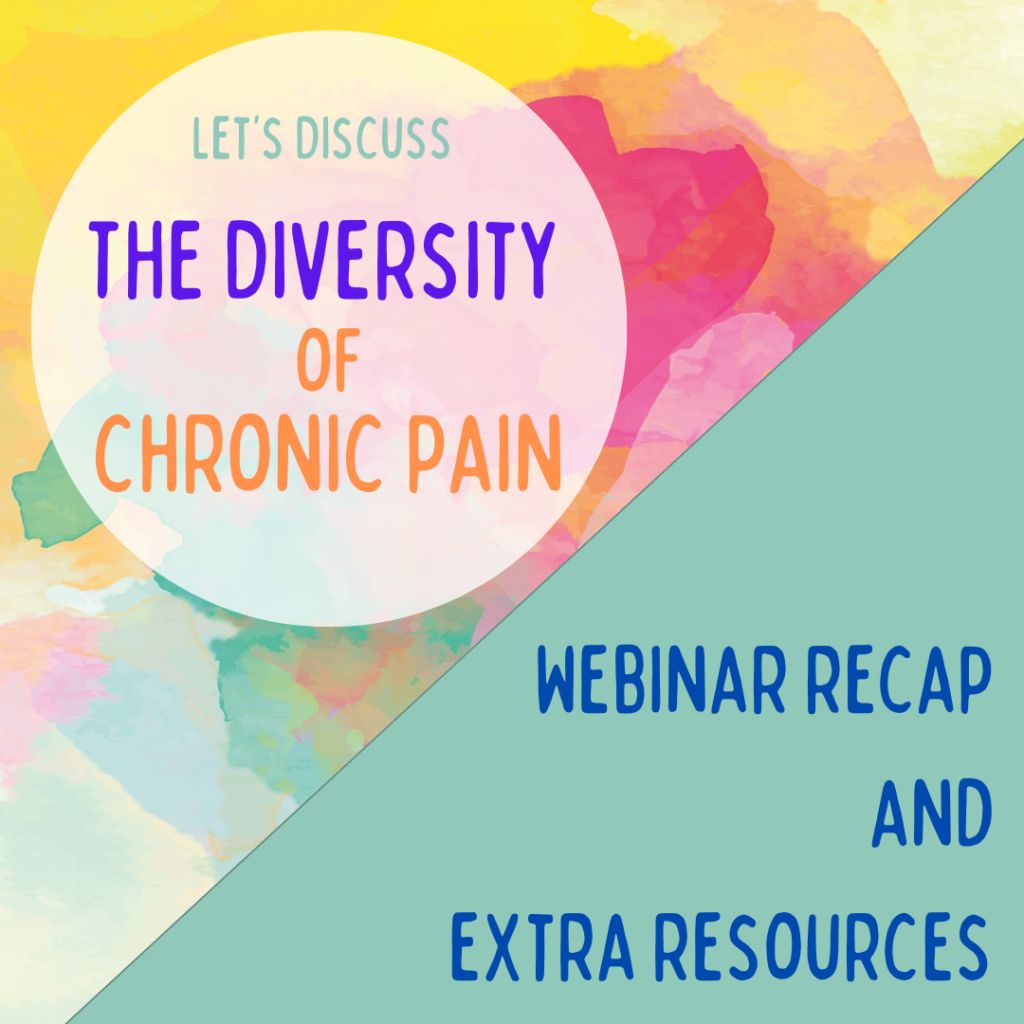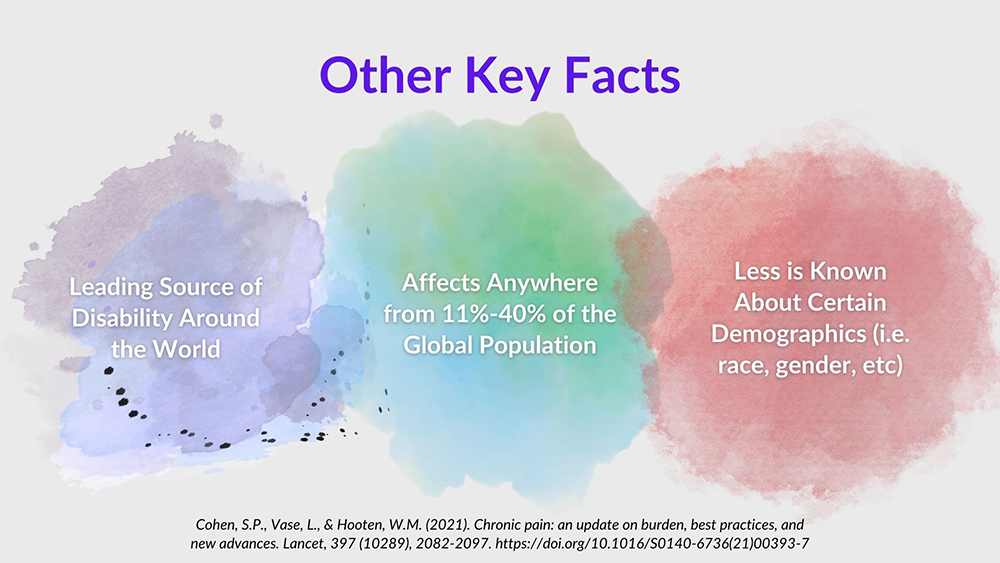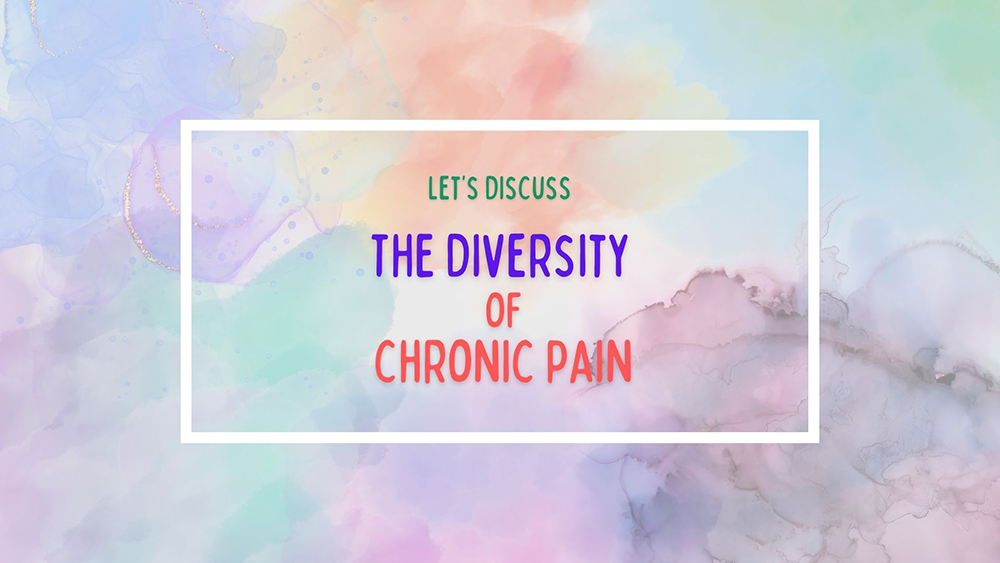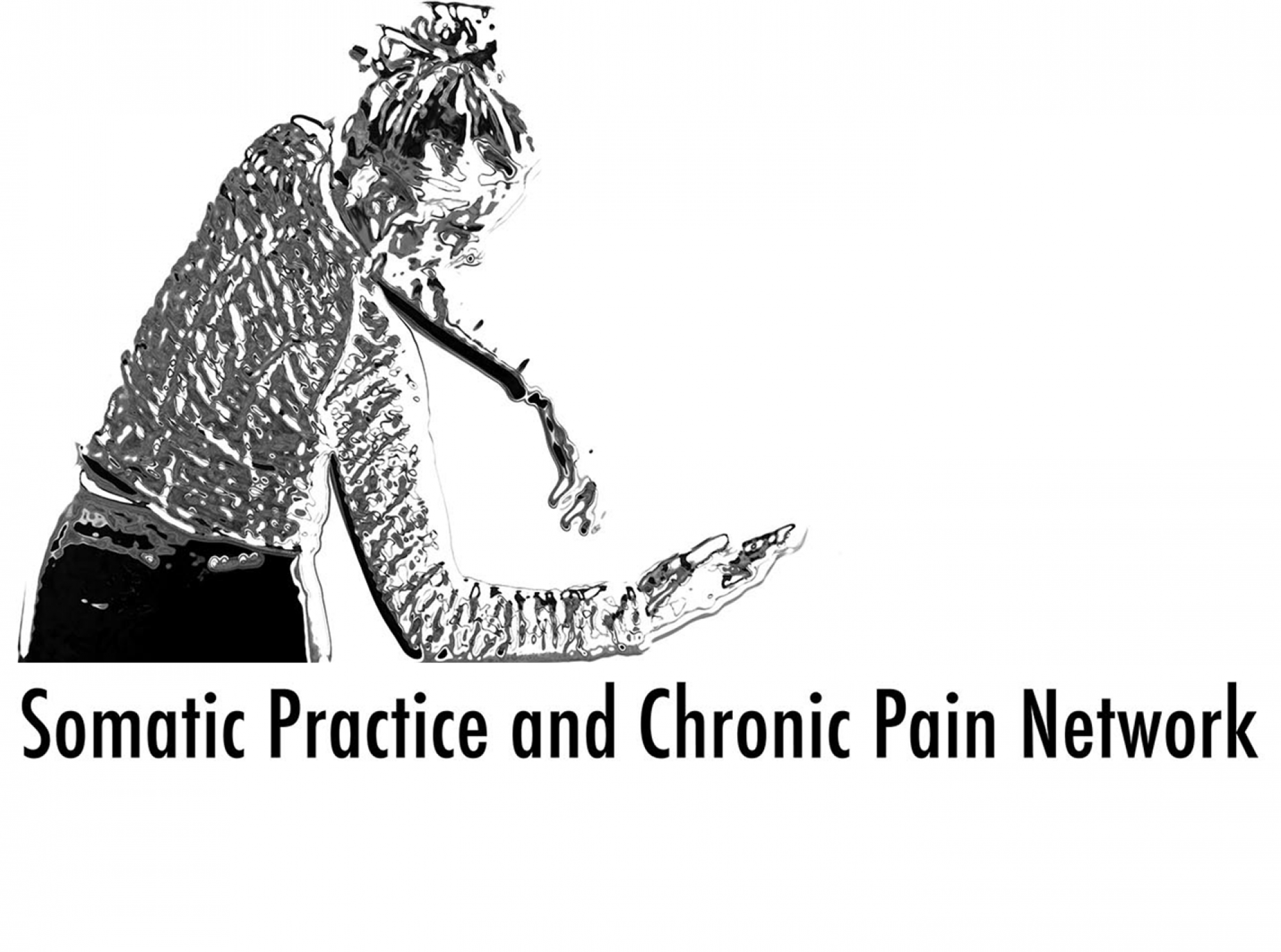By Dr. Eugenia Kim

The term ‘chronic pain’ is often used to refer to a wide variety of conditions, severity, and individuals. On 28 November 2023, we gathered to discuss this ‘diversity of chronic pain’ within the context of somatic practices. There were approximately 16 participants in total that included both SPCPN board members, SPCPN affiliates, and members of the general public. Participants mainly came from around the UK including Cumbria, Essex, Kent, Lancashire, London, Manchester, and Sheffield. There were also international participants joining from Canada, Singapore, and Slovenia. The group included individuals living with chronic pain, visual and performing artists, healthcare professionals, researchers, somatic practitioners, and others. Several individuals identified as belonging to multiple categories.
The webinar was originally proposed by Dr Bernie Carter, co-founder of SPCPN, as a way for the Network to engage with a broader audience. Board members Dr Rosa Kostic Cisneros and Dr Eugenia S. Kim joined Bernie in planning and developing the webinar.
During the initial brainstorming sessions, they discussed various topics such as using visual art to depict pain experiences (Bernie), how Roma women with chronic pain formed a community to support each other (Rosa), and the constantly evolving research on chronic pain across disciplines (Eugenia). From these discussions, the common thread of ‘diversity in chronic pain’ was identified as a first webinar topic and ‘positivity and chronic pain’ as a follow-up webinar topic. This plan was presented to and approved by the SPCPN board.
Rosa and Eugenia offered to co-host this webinar, which opened with a brief provocation by Eugenia consisting of facts related to chronic pain. Participants were then asked to consider the following questions before going into an open Q&A. Full details here.

From the Chat
The Q&A evolved in a very organic manner and included the sharing of personal experiences as well as ongoing research projects. Although the webinar was recorded, there was also a very lively discussion and additional sharing happening in the chat box. As a supplement to the webinar recording, we have decided to share some additional details and links about the projects that were mentioned.
Some themes from the chat:
- Living with pain can be made more difficult when obligated to hide it, when fearful that movement will trigger it, or when feeling isolated from others because of pain
- The value of lived experience, whether in providing peer support, collaborating in research, or simply understanding it
- The importance of compassion/self-compassion, creativity, community, and recognizing the unique needs of each individual
We also discussed related projects.
- Cognitive Functional Therapy (CFT) – CFT was developed by Australian physiotherapist Prof Peter O’ Sullivan for reducing pain intensity and improving functionality. More specifically, ‘CFT is an individualised approach targeting unhelpful pain-related cognition, emotions and behaviours contributing to pain and disability (Trudinger, 2023).’ A quick Google search reveals that CFT tends to be used for lower back chronic pain although it does not seem to be limited to just that purpose. To learn more, please read this open access article by O’Sullivan and collaborators here.
- Health within illness: The language of pain – This research project led by Trinity Laban researcher Dr Rebecca Stancliffe from 2022-2023 ‘uses arts-based methods to explore the lived experience of chronic pain (Trinity Laban, 2023).’ Other key themes include ‘the role of creativity in pain management’ and ‘people living with chronic pain as experts by experience’ (London Arts and Health, 2022). In her own words, Rebecca shared that:
‘In our project – we were exploring arts-based methods to share the experience of living with pain because people felt it was difficult to do this through words and language… there is a desire to be recognised as something other than one’s pain and illness and how to engage creatively without concentrating on one’s pain. But for others there was interest in entering a dialogue with one’s pain, to externalise subjective experience, and embrace the full spectrum of thoughts, feelings, and emotions.’
- Bodily and Embodied Experiences of Parkinson’s – In January 2024, artist and neuroscientist Dr Naila Kuhlmann ‘will begin… a research project about the potential of immersive technologies to convey bodily and felt (e.g. embodied) experiences of people with Parkinson (Fortin, chat transcription).’ Dr Kuhlmann’s previous research project Piece of Mind:Parkinson’s ‘brought together neuroscientists, people with Parkinson’s disease (PD), and artists to co-create a knowledge translation performance based on scientific research and lived experience. (Kuhlmann et al., 2023)’ Somatic practitioner Dr Sylvie Fortin [5] will be one of the collaborators on the new project.
- EnTimeMent – This Affecting Computing research project at the UCL Interaction Centre ‘aim[s] to develop what is understood about human movement, build more advanced systems for automatic recognition of painful movement, and explore how sound/music systems that tailor output to both movement and pain-related experiences could be of value to people with chronic pain (UCLIC, 2023).’ Prof Nadia Berthouze further clarifies that
‘We are working on how transforming movement into sound through wearable sensors can help focus on movement and increase self efficacy. I found the work on dance and breathing very interesting and relevant to what we are doing. If interested, please reach out here’. For additional information on the project, please visit here.
- Singing for Health Network – A UK-based network of ‘singing practitioners, researchers, health and healthcare professionals in the UK and across the world’ who engage in both research and practice centred around arts and health. Founder and Director Emily Foulkes shared that ‘Singing/Voice work can help build in movement ‘by stealth’ and that:
‘When we are working in an embodied way, people just don’t realise what they are capable of. When you reflect on this, it can give a real boost (building self-efficacy/empowerment)…We build in elements of compassionate focussed coaching to mitigate against potential feelings of pressure/stress/guilt even. Acceptance and self-compassion is important for people to give themselves ‘permission’. Singing For Health Network is run by the charity Music for Good. More information can be found here.

Additional Resources
In addition to the projects listed above, we also wanted to share some of the resources recommended by participants.
The following books are available in print and eBook form with suggested links on how to purchase or borrow a copy:
- Atkinson, Tim (2021). Where Does It Hurt?: Life With Chronic Pain. Dotterel Press, UK.
- Hattrick, Alice (2022). Ill Feelings. The Feminist Press at the City University of New York, New York.
- Lyman, Monty (2021). The Painful Truth : The New Science of Why We Hurt and How We Can Heal. Transworld Digital, London.
Feedback
Participants said what stood out for them from the webinar:
| The safe space created for people to share |
| A really wonderful collaborative conversation |
| The range of participants who joined in! |
| Excellent opportunity to network and learn abut what other people are doing within the area of chronic pain |
| The space and time offered by such a conversation to a diversity of voices . |
| Excellent focus on essential and meaningful questions and concerns for people facing chronic pain and others wanting to support them |
| The openness and connection between everyone. |
| The diversity of perspectives and experiences coming together. The safe space created to share. The generosity of of sharing. There is definitely a need for spaces such as this |
Thank you!
Do any of the questions, projects, resources and/or themes resonate with you? If so, we would love to hear from you! Please feel free to leave a comment or contact us directly at emma.meehan@coventry.ac.uk Also stay tuned for future webinars and other events on this website and our social media.
With thanks to the SPCPN board and everyone who participated.
